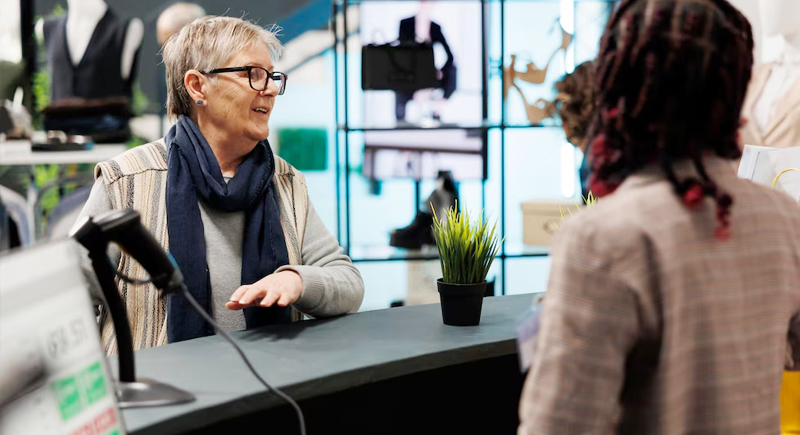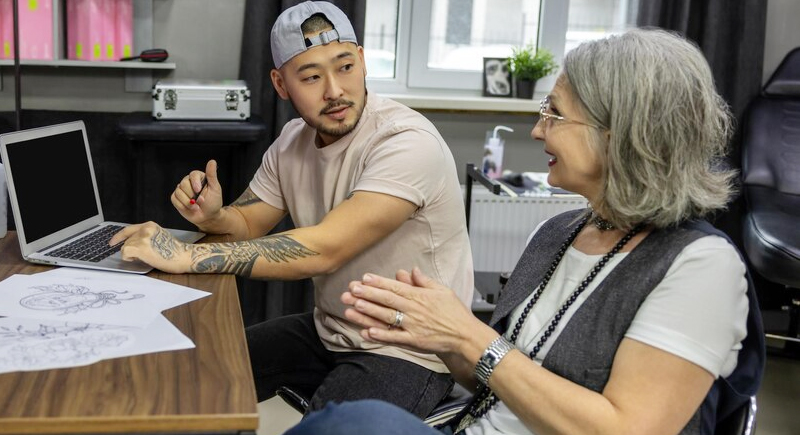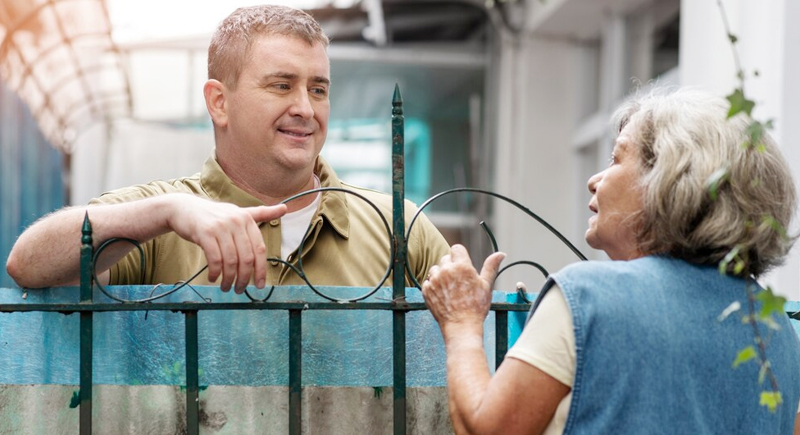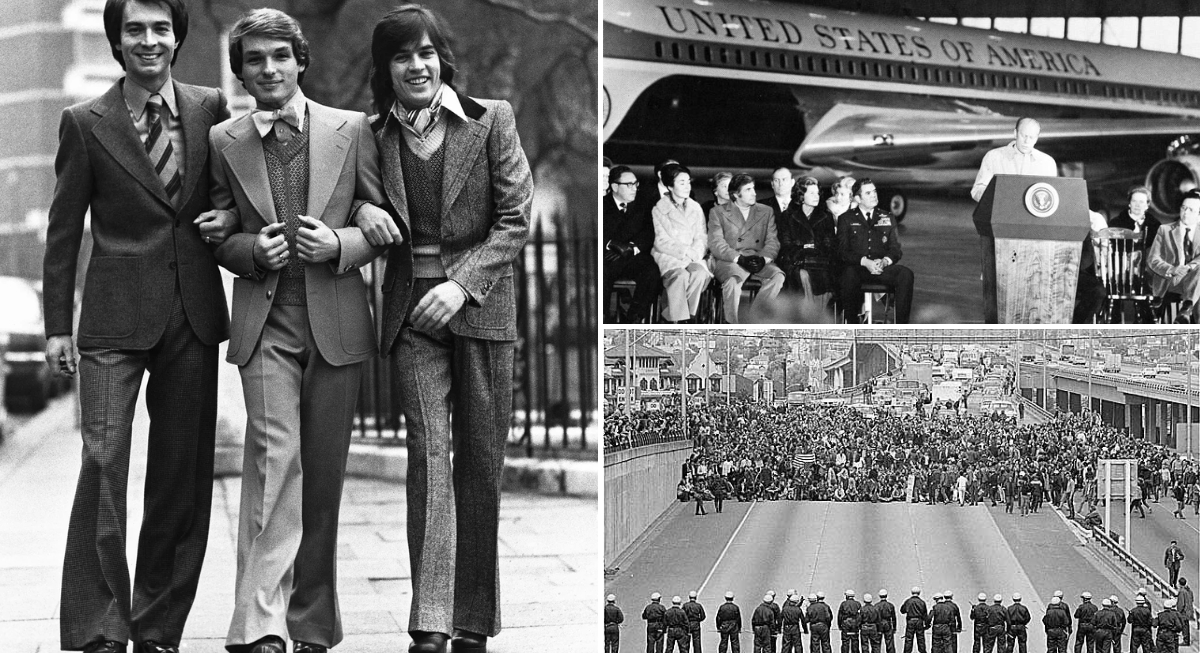Every generation has its quirks, but some habits scream "boomer energy" louder than a Facebook post in all caps. We compiled those everyday behaviors that make boomers seem adorably out of step with modern trends. These are the moments that make you realize time really has moved on.
Typing in All Caps Like They're Shouting

Credit: Canva
All caps used to be a typewriter thing. Now, it's digital yelling, whether intended or not. Boomers often use caps to emphasize points, unaware that it is aggressive online. While it made sense in the early email days, it triggers instant cringe today, and younger people interpret it as rude.
Calling Instead of Texting for Quick Updates

Credit: Canva
Boomers might need a simple "yes" or "no" but will still call instead of sending a two-word text. It's more of a comfort thing for them since phones used to be only for voice calls, and texting feels impersonal. But when everyone's multitasking, those surprise phone calls feel intrusive.
Talking Loudly on Speakerphone in Public Places

Credit: freepik
Public speakerphone conversations are the unofficial soundtrack of waiting rooms and checkout lines. Boomers aren't the only ones guilty, but they seem blissfully unaware of how disruptive it sounds. What feels convenient to them often feels like eavesdropping punishment to everyone nearby.
Telling Retail Workers Their Life Story at Checkout

Credit: freepik
Boomers love a good story and often bring it straight to the register. It starts as small talk and quickly becomes a full-blown autobiography, complete with dates, names, and unrelated commentary. It can be charming, but it's often overwhelming for younger workers trying to move through a line.
Talking About "The Good Ol' Days" Mid-Conversation

Credit: Canva
There's nothing wrong with nostalgia until it becomes a conversation roadblock. Boomers often pivot to "the good ol' days" during any topic. It can make younger listeners feel like their lives are perpetually second-best. Idealizing the past can cause generational disconnection.
Clinging to Paper Maps Instead of GPS

Credit: freepik
Refolding a paper map is a lost art boomers have perfected. But in a GPS-driven world, whipping one out mid-trip feels like time travel. They trust those massive foldouts more than "some robot voice," despite studies showing GPS is more accurate than human memory in unfamiliar areas.
Leaving Voicemails for Everything

Credit: Canva
Once upon a time, voicemails were the only way to leave a message. But, these days, a missed call followed by a "call me back" voicemail feels like digital redundancy. Boomers tend to leave detailed voicemails even when a text would do. Millennials and Gen Z often ignore them altogether.
Standing Too Close in Lines Without Noticing

Credit: pexels
Boomers grew up before personal space had a marketing campaign. Social distancing aside, many still don't recognize the invisible bubble most people want in lines. They inch up—shoulder nearly touching—believing it keeps the line moving. But to others, it feels intrusive.
Forwarding Chain Emails With Outdated "Inspiration"

Credit: freepik
You've got mail—and it's another "pass this on or be cursed" message full of glittery GIFs and outdated quotes. These emails clog inboxes and occasionally contain misinformation. It's sweet that they want to stay connected, yet there are better ways to say "I'm thinking of you" now.
Sharing Way Too Much Personal Info on Facebook

Credit: freepik
There's casual posting, and then there's announcing your colonoscopy results to 328 people, half of whom you haven't spoken to. Boomers often use Facebook as a personal bulletin board by sharing everything from relationship updates to neighborhood feuds in excruciating detail. It's well-meaning, however, younger users tend to value privacy and selective sharing.
Complaining About Tattoos and Piercings

Credit: freepik
Boomers grew up during an era when tattoos were taboo, where it is often linked to rebellion or regret. That mindset didn't keep up. Pew Research shows nearly 40% of millennials have tattoos, and many are professionals, parents, or even teachers. Yet boomers may still wince or comment negatively.
Using Outdated Slang Like "Groovy" Unironically

Credit: freepik
Saying things like "groovy," "far out," or "neato" might sound fun, but it hits differently when no one around uses those words anymore. It sounds nostalgic to one generation but offbeat to another.
Misusing Emojis in the Most Unexpected Ways

Credit: pexels
Boomers and emojis have a complicated relationship. A thumbs-up might feel polite to them, but younger users view it as cold or sarcastic. Emojis are today's digital tone indicators, and using them incorrectly changes the message completely.
Telling Strangers How Much Houses "Used to Cost"

Credit: freepik
Boomers love to talk real estate like it's still 1973. Mention renting or buying a home, and someone's bound to chime in with how they bought their place for $30,000. It's not bragging, but bafflement. They often forget how drastically wages, inflation, and market dynamics have changed.
Oversharing Medical Issues With Acquaintances

Credit: freepik
A casual "How are you?" leads to a detailed rundown of doctor visits and medication changes. While they're often just being open, it catches younger people off guard. It's a cultural habit, but when someone you barely know starts describing their knee fluid, it's time to reel it back a bit.





